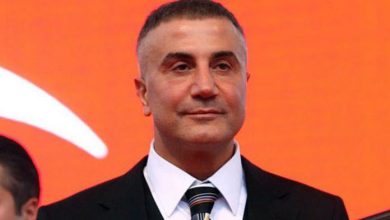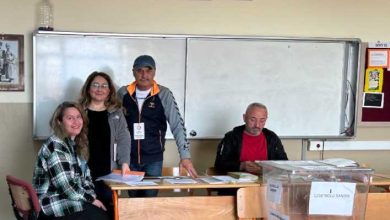Turkey’s RTÜK stifles debate after every major crisis
According to Reporters Without Borders (RSF), 85 percent of the national media in Turkey is already owned by pro-government businessmen and toe the official line.

Turkey’s broadcasting watchdog, the Radio and Television Supreme Council (RTÜK), stifles debate over government accountability after deadly incidents such as terrorist attacks and natural disasters that wreak havoc by imposing broadcast bans and threatening independent networks with punitive measures.
RTÜK has recently issued written and verbal warnings to TV stations in the country, threatening them with punishment if they cover wildfires that have been raging on Turkey’s southern and western coasts since July 28, according to Republican People’s Party (CHP) lawmaker İlhan Taşçı, who is also a member of RTÜK.
Taşçı claimed that RTÜK chairman Ebubekir Şahin sent the warning to the managers of TV stations and told them they would be given the harshest punishment possible if they cover the ongoing wildfires. Şahin allegedly told the managers to only show the areas where the flames have been brought under control and explain to the public how successfully the fires were contained in those areas.
President Recep Tayyip Erdoğan and his Justice and Development Party (AKP) government have been facing increased criticism over the apparent poor response and inadequate preparedness for the large-scale wildfires, which have so far claimed the lives of nine people.
As residents lost homes and livestock, anger turned toward the government, which admitted that it did not have a usable firefighting aircraft fleet. Opposition parties accused the government of failing to procure firefighting planes and instead spending money on construction projects that they say are harmful to the environment.
According to Reporters Without Borders (RSF), 85 percent of the national media in Turkey is already owned by pro-government businessmen and toe the official line.
At the head of the AKP-dominated media landscape, RTÜK is contributing to increasing censorship in the country by imposing punitive and disproportionate sanctions on independent television and radio stations critical of the Turkish government.
Broadcasting bans and fines are used by RTÜK to punish TV stations that are critical of the AKP government.
According to RTÜK data, more than 600 broadcast bans have been imposed by the broadcasting watchdog since 2010. The figure has grown exponentially, from just four such bans in 2010 to more than a hundred each year from 2018 onward.
Among the subjects of such broadcast bans are terrorist attacks, explosions and incidents with high death tolls such as a fire inside a coal mine in 2014 that killed 301 miners, ISIL attacks in 2016 that claimed hundreds of lives and a train accident in Çorlu that killed 24 people when a passenger train derailed.
All share a similar trait, with many people pointing to the authorities’ failure, negligence or complacence. Broadcast bans were imposed in an attempt to quell dissenting views by preventing crucial information from reaching the public.
Even though the Internet has become the primary news source for many, a majority of the Turkish public still relies on television for news coverage.
The Turkish government shuttered 60 TV and radio channels by decree during a state of emergency imposed after an abortive putsch in July 2016.
The government has also played an active role in the takeover of big media outlets since 2007 by companies that it considers friendly. Under new ownership, the media outlets have tailored their coverage to avoid criticism of the government, and in some cases, acted as direct mouthpieces for the presidency.




